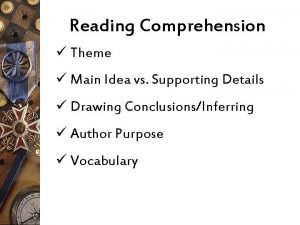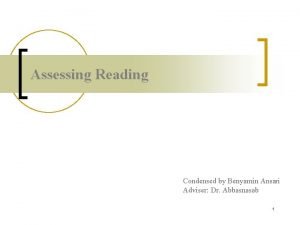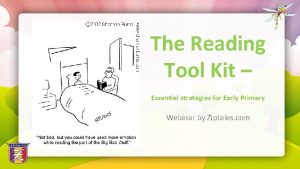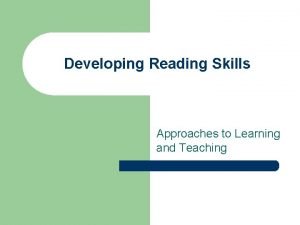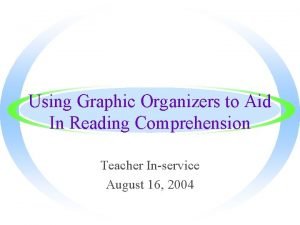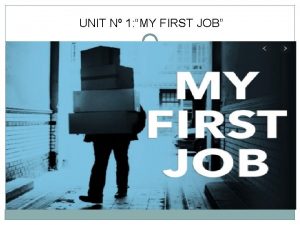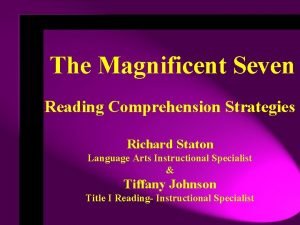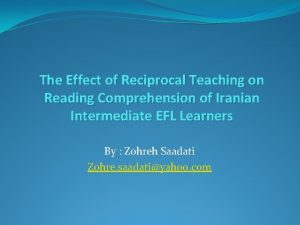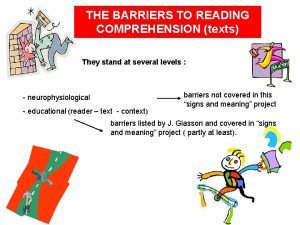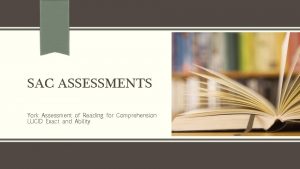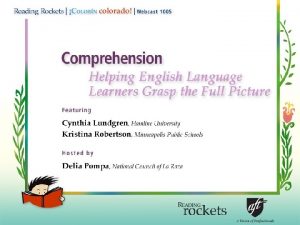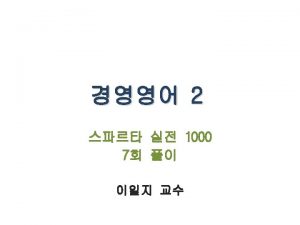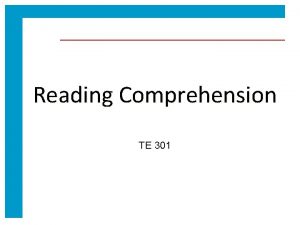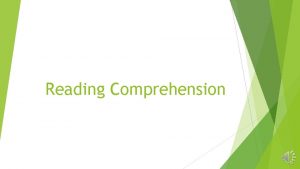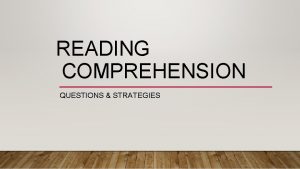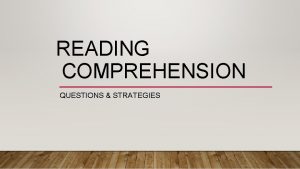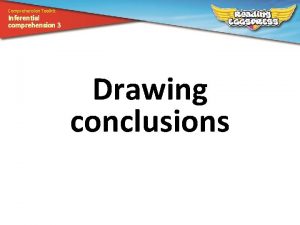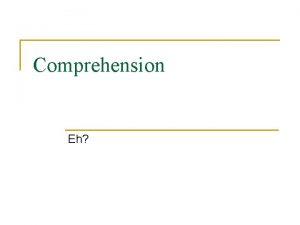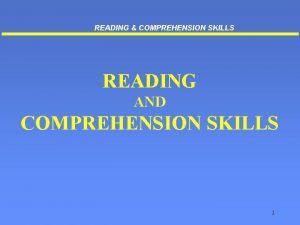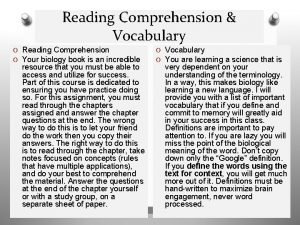Reading Questions Reading comprehension Types of questions Main












- Slides: 12

Reading Questions Reading comprehension

Types of questions

Main Idea Typically asks you to find the MAIN POINT of the passage Typically phrased: The passage deals mainly with… The main of this idea may be expressed as… The title that best expresses the ideas of this passage is… The writers main purpose is apparently… The best name for this story is …. The best title for this passage is…

Word in Context questions – meanings from context clues Which of the following gives an example of … Which of the following definitions most closely fits…. Which of the following is an example of…. The word ___, as underlined and used in this passage most nearly means…. .

Fact questions – fact from opinion When did the action described in this passage take place? Why did X do Y? What is the setting of this passage? What did the main character of this passage do? Not do? All but which of the following facts are true?

Inference questions – drawing conclusions Why do you think that? What is the most likely? Comparing the two paragraphs in this reading passage, we can say that… The author implies that…. Based on the information in this passage, the reader can infer that…. Which of the following is most likely true?

Main idea strategies Most main ideas are either at the beginning or the end of the passage This sentence often introduces the topic and summarizes the reason for writing the passage

Word in context strategies Find the word you are being asked to define Look for context clues Most helpful are synonyms, definitions, or examples Look for semicolons or clue words like “or” Look for the most appropriate answer, not just correct ones

Fact question strategies Don’t rush and make sure you understand the question being asked Look out for words and phrases from the passage When data is given, be careful – you might have to use it to figure out something Pay attention to dates

Strategies for inference questions Try to understand the writer’s purpose – ask yourself “WHY? ” did the author write it? Pay attention to word connotations Look for biased writing

Reading comprehension Read the questions first – decide which type of question it is Do not read answers Put the answer in your own words Read the answers Eliminate wrong answers Narrow down Pick one

 Theme vs topic
Theme vs topic Cloze reading examples
Cloze reading examples What are the main types of reading tools
What are the main types of reading tools Pre reading while reading and post reading activities
Pre reading while reading and post reading activities Invention inspired by nature
Invention inspired by nature Story maps for reading comprehension
Story maps for reading comprehension My first job reading comprehension
My first job reading comprehension Jobs and occupations reading comprehension
Jobs and occupations reading comprehension 7 reading comprehension strategies
7 reading comprehension strategies Explain reading comprehension
Explain reading comprehension Barriers in reading
Barriers in reading Yarc reading assessment
Yarc reading assessment Meaning reading comprehension
Meaning reading comprehension
